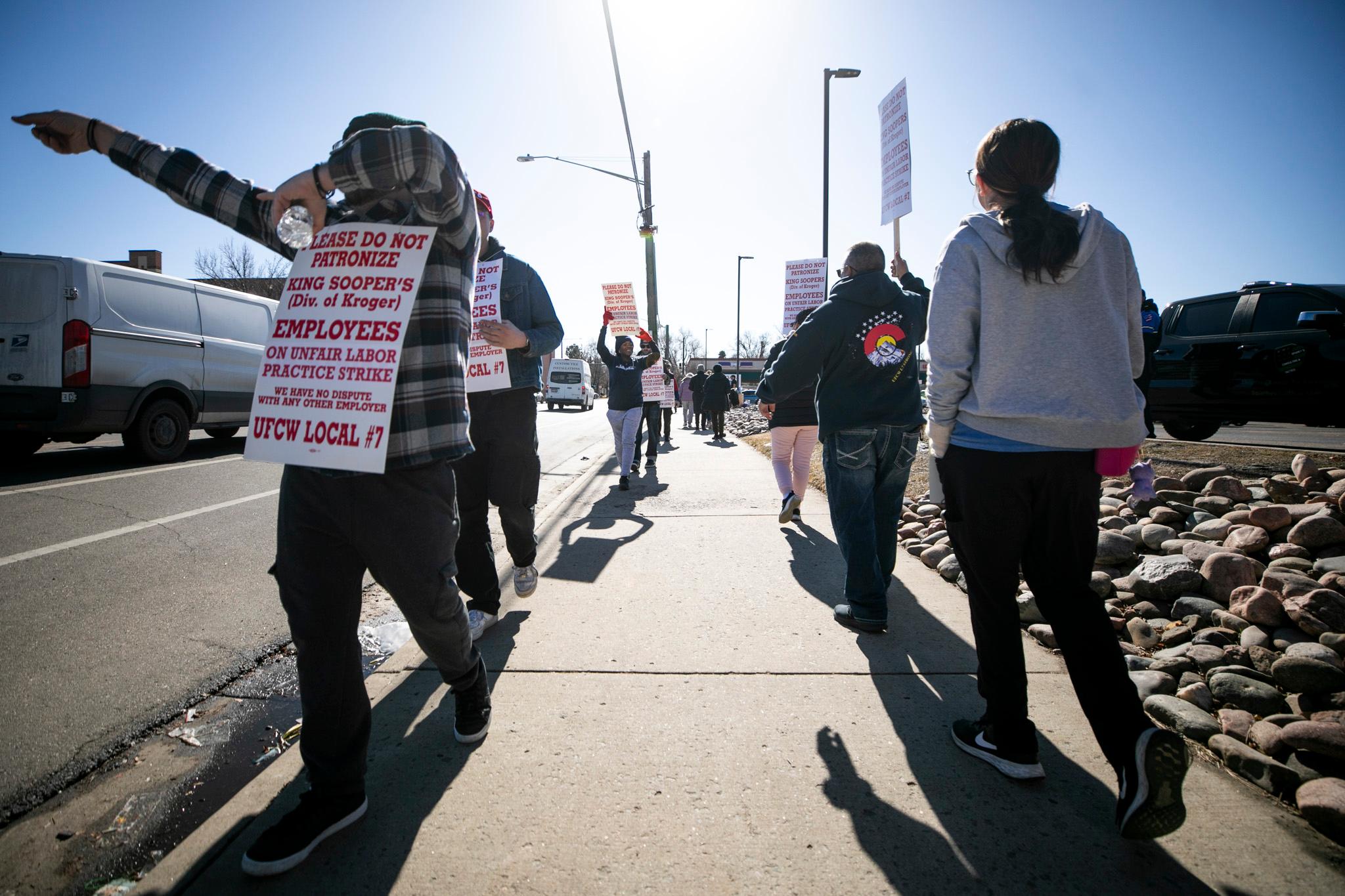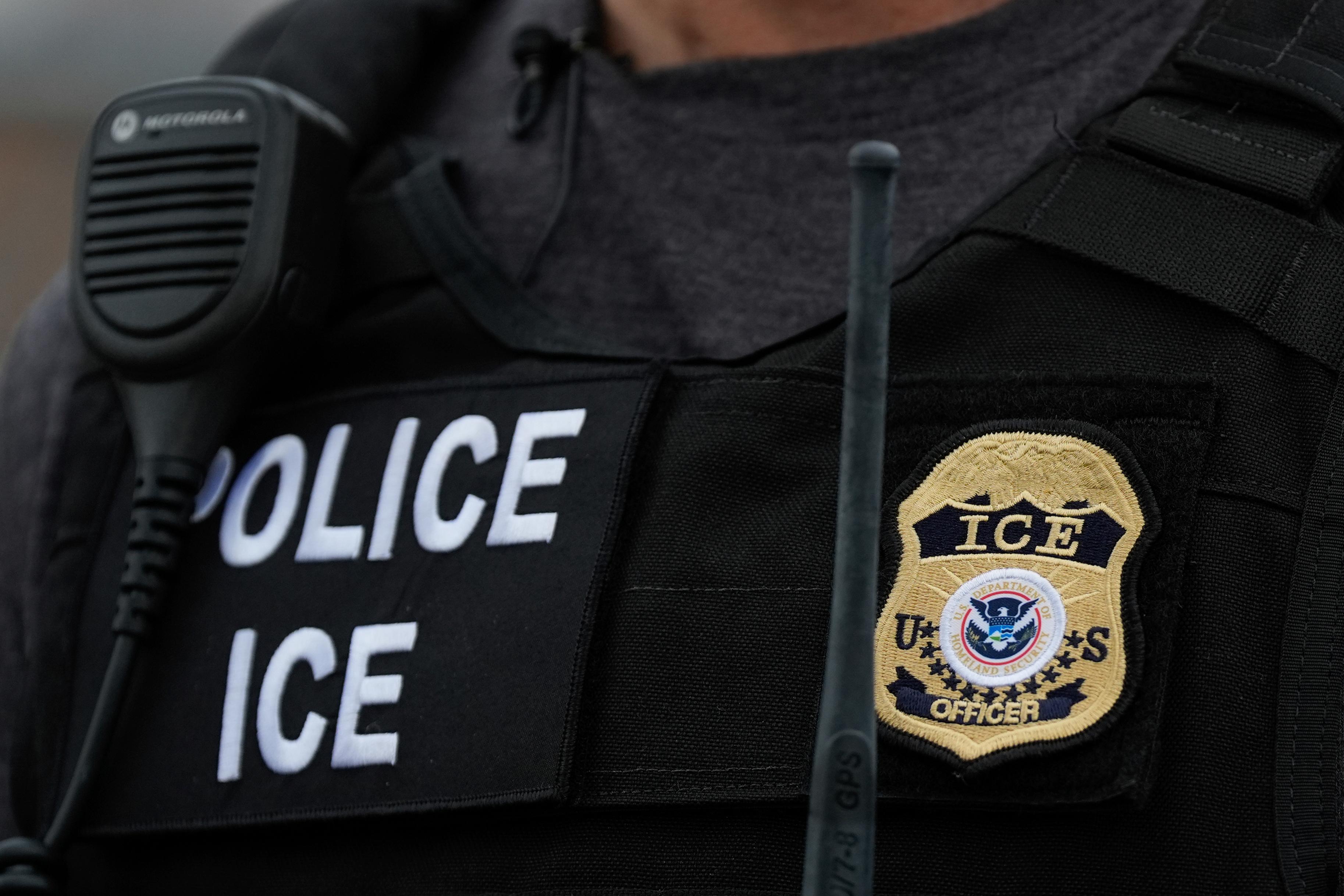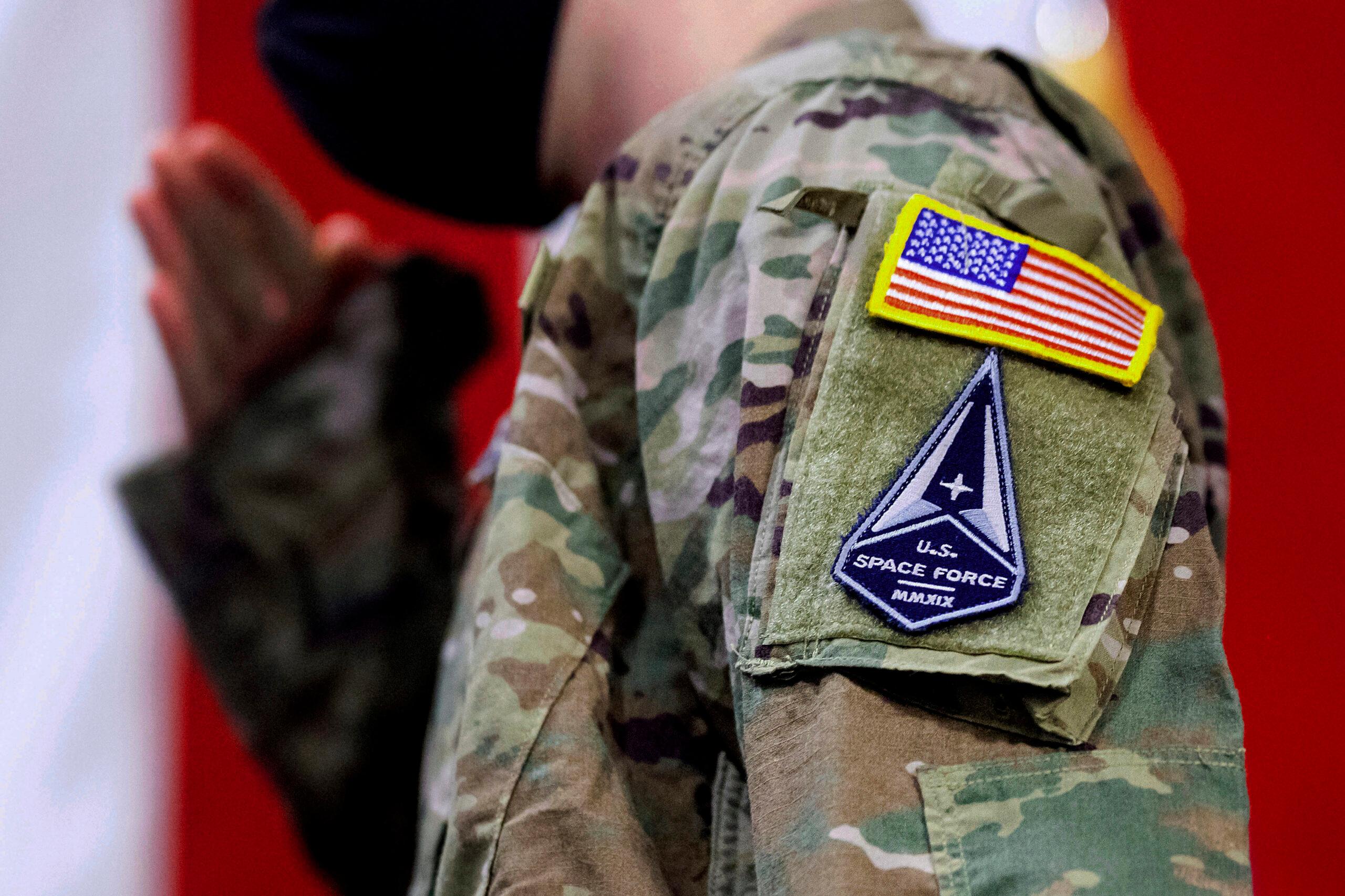
A Denver District Court judge on Friday rejected most of King Soopers' request for a temporary restraining order as a strike against the company enters its second week.
District Judge Sarah B. Wallace did impose some restrictions on how employees can behave on picket lines, saying certain conduct could pose safety risks.
“The ULP strike will continue and the workers’ voices on the picket line will continue to be heard at stores across the state,” said a statement from UCFW Local 7, the union representing the striking workers.
King Soopers requested the restraining order against the union earlier this week, citing “multiple incidents” of picketers preventing and physically blocking customers from entering stores, and saying picketers falsely told customers that the stores were closed. It also alleged picketers were causing fire hazards by using portable heaters near store entrances.
Specifically, the restraining order sought to limit picketers outside stores to six people at a time, and asked the judge to bar employees from blocking entrances to the stores and parking lots.
The judge accepted part of that request Friday, instructing union members not to physically block delivery trucks or erect “temporary structures,” like tents or canopies, that block store entrances, crosswalks and sidewalks.
“Between February 6, 2025 and February 11, 2025, there have been approximately fifty incident reports generated regarding alleged picketer misconduct. Many of the incident reports contain inadmissible hearsay,” Wallace wrote in her ruling. “The Court holds this is a relatively small number given there are approximately eighty striking stores with picketing activity conducted over a six-day period.”
Wallace also acknowledged union organizers held training sessions prior to the strike and required its members to sign documents outlining conduct guidelines. The directions told picketers “not to swear, block traffic, block entrances, bring chairs, make threats or engage in intimidating behavior, engage in physical contact, or use voice modulation devices such as megaphones inappropriately.”
“The Court holds that while some of these guidelines may have been violated, the events seem to be isolated and the guidelines show an effort on the part of the Union to have a peaceful strike,” she said.
The approved parts of the restraining order will stay in place through Feb. 28, Wallace said.
Unionized employees have been picketing outside of King Soopers stores and urging customers to shop elsewhere. According to the union, the workers are calling for the grocery giant to address staffing shortages, end alleged price gouging and eliminate seniority-based scheduling protections.
“King Soopers asked for a sweeping injunction to severely limit our picketing activity – describing the request as seeking – in short – to restrict any picketing activity the Company finds inconvenient and distracting,” the union’s statement said. “The Court soundly rejected these requests.”
Nearly 100 stores across the Front Range, primarily in the Denver metro, are still on strike. Despite the scale of the strike, however, all of the stores remained open with some affected locations operating on temporary hours with temporary workers.
UFCW Local 7 condemned King Soopers’s decision to request the temporary restraining order and called it an attempt to silence and intimidate picketers.
“The decision to seek a temporary restraining order was not made lightly and is certainly not intended to silence associates,” the company said Friday in a statement responding to the judge’s order. “We’ve said from the beginning that we respect our associates’ right to peacefully assemble. However, it is crucial that we maintain an environment of mutual respect.”
King Soopers has previously filed for restraining orders against striking workers. In 2022, a judge granted the company’s request two weeks into a union strike.









